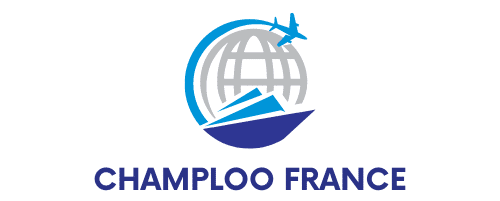How Can UK-Based NPOs Track Donor Engagement Through CRM Systems?

As UK-based nonprofits, you’re probably looking for ways to manage and improve your relationship with donors. One practical solution is to use a Customer Relationship Management (CRM) system. A CRM system can help you track donor engagement effectively, which is crucial for maintaining your relationship with donors and maximizing fundraising potential. In this article, we will delve into how you can leverage these tools for your nonprofit organization’s benefit.
Understanding CRM Systems and Their Importance in Fundraising
Before we dive into how you can use CRM systems to manage donor engagement, let’s gain a deeper understanding of what CRM systems are and why they’re vital for fundraising efforts.
A découvrir également : What Are the Key Factors to Consider for a Seamless M-commerce Checkout Experience?
A CRM system is a software tool that helps businesses and organizations manage their relationship with customers or, in the case of nonprofits, donors. It achieves this by accumulating and analyzing data from various channels, offering a comprehensive view of each donor. As nonprofits, you can use this data to form better relationships with your donors, ensuring they remain engaged and committed to your cause.
Fundraising and donor management are core aspects of running any nonprofit. With a CRM system, you can keep track of donation data, donor information, their engagement levels, and more. This data will help you understand your donors better, allowing you to tailor your fundraising strategies more effectively.
A lire en complément : The rise of white label saas for businesses
Key Features of CRM Systems Beneficial for Nonprofits
There are numerous CRM systems available in the market today, including Salesforce and Microsoft. While each has its unique features, certain key elements make a CRM system beneficial for nonprofits.
Firstly, a good CRM system will offer data management features. These features allow you to store and organize donor data effectively. They help manage donor profiles, track donation history, and monitor donor engagement. Such data can play a critical role in developing personalized fundraising strategies.
Secondly, CRM systems often come with tools to help with fundraising. These may include donation tracking tools, event management tools, and marketing tools. They can also offer features like peer-to-peer fundraising and recurring donation options.
Lastly, CRM systems should provide features that make it easy to access the software. This can include cloud-based access, mobile access, and user-friendly interfaces. This ensures that all staff members can use the system effectively, regardless of their technical proficiency.
Implementing CRM Systems for Effective Donor Management
Now that we’ve understood the importance and features of CRM systems let’s explore how you can implement them for effective donor management.
The first step is to choose the right CRM system for your needs. Consider factors such as the size of your organization, the number of donors you manage, your budget, and the specific features you require. Once you’ve selected a system, you’ll need to import your existing donor data. Many CRM systems offer tools to help with this process.
Next, train your staff on how to use the CRM system. Make sure they understand all the features and tools available to them and how to use them effectively. A well-implemented CRM system can greatly streamline your donor management processes and improve your overall fundraising strategy.
How CRM Systems Can Facilitate Donor Engagement
Ultimately, a CRM system should facilitate a solid relationship with your donors. It should provide you with the tools and data you need to engage your donors effectively.
By using the data gathered by your CRM system, you can create personalized communication and marketing strategies. For instance, if a donor is more responsive to email marketing, your CRM system should detect this and adapt your communication strategy accordingly.
Through CRM systems, you can also track donor engagement metrics, such as donation frequency, event attendance, and responses to communication efforts. By keeping a close eye on these metrics, you can identify which donors are the most engaged and focus your efforts on maintaining and enhancing these relationships.
A well-utilized CRM system can dramatically improve your donor engagement levels, ultimately leading to increased fundraising success for your nonprofit organization. By understanding your donors better, you can ensure they remain committed to your cause, and their support continues to grow.
The Role of CRM Systems in Building Donor Relationships
Strengthening donor relationships is one of the most significant components of a successful non-profit organisation. To build and maintain these relationships, understanding your donors is crucial. This is where CRM systems come into play.
CRM systems work as a repository for donor data, providing insights into donors’ habits, preferences, and engagement levels. This software can capture information from multiple sources, such as online donations, events, social media interactions, and email marketing responses. By analysing this data, CRM systems can provide a comprehensive view of each donor’s engagement level.
For instance, you might find that certain donors prefer to donate through your website, while others prefer to contribute at events or respond to email marketing campaigns. This valuable insight gained from the CRM software can guide your team in personalising communication strategies to meet donors’ preferences and retain their involvement.
Additionally, CRM systems also offer case management features, which can be particularly beneficial for larger non-profit organisations. Case management allows you to track and manage individual donor interactions, ensuring that no donor is overlooked and that each one receives consistent and personalised attention.
Utilising the right CRM solution can, therefore, help your charity organisation build stronger, more meaningful relationships with donors. By understanding their behaviours and preferences, you can keep them engaged and, in turn, increase the likelihood of continued support.
Selecting the Best CRM for Your Non-profit Organisation
With the myriad of CRM systems available, choosing the right one may seem daunting. However, understanding your non-profit organisation’s needs can help narrow down your choices.
One consideration could be whether a cloud-based CRM system is right for your organisation. Cloud-based systems offer flexibility and remote accessibility, which can be advantageous in today’s increasingly digital and mobile environment. Microsoft Dynamics, for instance, offers a cloud-based CRM solution that enables access to donor data at any time and from any location.
Another critical factor to consider is the system’s ability to integrate with other platforms. A CRM that can seamlessly integrate with existing software, such as email marketing tools or social media platforms, can streamline processes and improve efficiency.
One of the best CRM practices is to look for software that has been specifically designed for non-profit organisations. For example, Access Charity CRM offers features tailored to the needs of charity organisations such as donation tracking, event management, and marketing automation.
Lastly, consider the level of support the CRM provider offers. You want a provider that offers comprehensive training and technical support to ensure your team can effectively use the software.
In conclusion, CRM systems are invaluable tools for UK-based non-profit organisations. By providing a comprehensive view of donor data, these systems facilitate the development of personalised strategies that can significantly improve donor engagement and fundraising efforts. While selecting the right CRM system may seem overwhelming, understanding your organisation’s needs can guide you towards the ideal solution. Remember, the goal is to enhance donor relationships and ensure the continued growth and success of your organisation.
